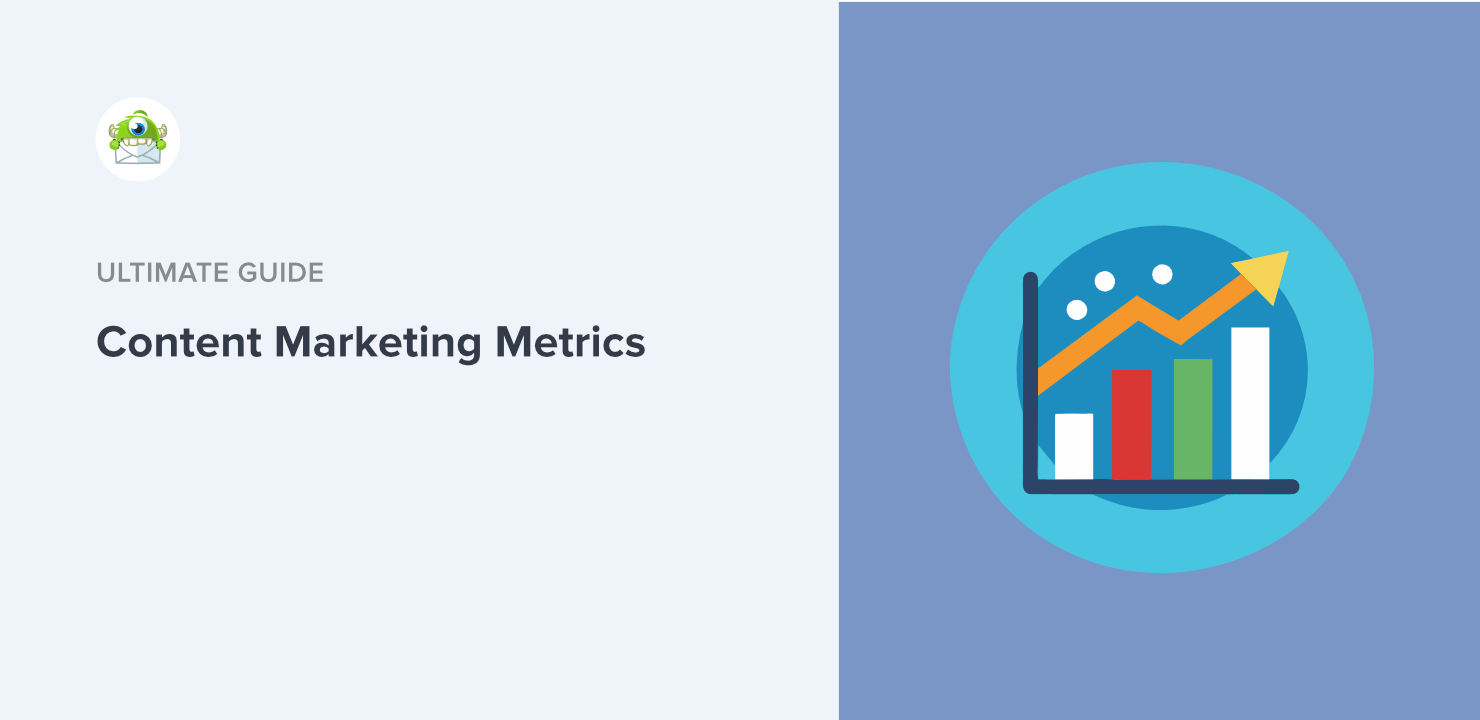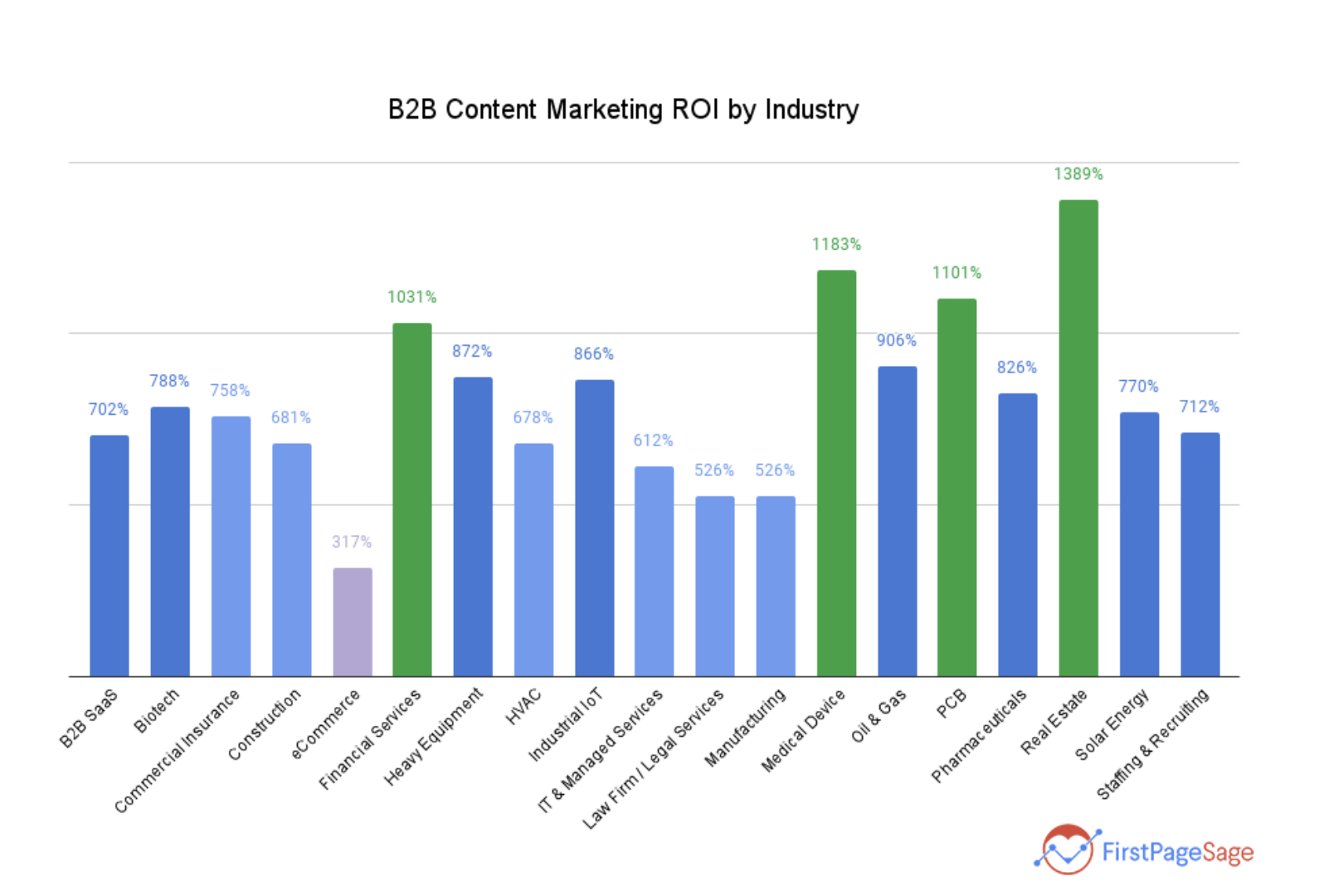Understanding the ROI of SEO content marketing is crucial. It helps assess the effectiveness of your strategies.
Measuring the ROI of your SEO content marketing efforts can be challenging. Many businesses struggle to quantify the returns on their investment. Yet, it’s essential for understanding the value of your content and making informed decisions. This process involves tracking various metrics and analyzing their impact on your overall marketing goals.
By doing so, you can identify what works and what doesn’t, ensuring your resources are well spent. In this blog post, we will explore the key methods to measure ROI in SEO content marketing. This will help you better understand your campaigns’ success and optimize future strategies.

Credit: optinmonster.com
Introduction To Roi In Seo
Measuring the Return on Investment (ROI) in SEO content marketing is crucial. It helps businesses see the impact of their SEO efforts. Understanding ROI can guide future marketing strategies and budget allocations.
Importance Of Roi
Knowing the ROI of your SEO efforts is essential. It shows the financial benefits gained compared to the money spent. This metric helps determine if your SEO strategy is effective. Businesses can make better decisions with this data.
- Better budget allocation
- Identifying successful strategies
- Improving marketing tactics
Tracking ROI helps to know which SEO tactics work best. This knowledge helps in refining your approach.
Seo And Business Growth
SEO contributes significantly to business growth. Improved search engine rankings lead to more visibility. More visibility means more traffic. Increased traffic can result in higher sales.
Businesses investing in SEO see long-term benefits. SEO helps in building brand authority. Over time, this leads to sustained growth.
| SEO Benefit | Impact on Business |
|---|---|
| Increased Traffic | More potential customers |
| Higher Rankings | Better brand visibility |
| Cost-effective Marketing | Higher ROI |
Understanding the ROI of SEO is not just about numbers. It is about seeing the bigger picture. Businesses can thrive with a well-measured and effective SEO strategy.
.png?width=562&height=328&name=Frame%2055%20(1).png)
Credit: www.foleon.com
Key Metrics For Seo Roi
Measuring the ROI of SEO content marketing is crucial for assessing the effectiveness of your strategies. Knowing which metrics to track helps you understand how your efforts translate into tangible results. This section delves into the key metrics for evaluating SEO ROI.
Organic Traffic
Organic traffic refers to the visitors who come to your site through search engines. It is a vital indicator of your SEO performance. Higher organic traffic means more people find your content valuable. Use tools like Google Analytics to monitor these numbers. Check the trends over time to see growth patterns.
Conversion Rates
Conversion rates measure how many visitors take a desired action. This action can be filling out a form, making a purchase, or signing up for a newsletter. High conversion rates signal that your content is effective. Use A/B testing to optimize pages for better conversions. Ensure your calls-to-action are clear and compelling.
Setting Seo Goals
Setting clear SEO goals is essential for measuring the ROI of your content marketing efforts. Without defined goals, it is hard to track progress and determine success. This guide will help you set effective SEO goals that align with your business objectives.
Defining Objectives
Start by identifying what you want to achieve with your SEO efforts. Do you want to increase website traffic? Improve search engine rankings? Generate more leads or sales? Clear objectives provide direction and help focus your strategies.
Aligning With Business Goals
Ensure your SEO objectives align with your overall business goals. If your business aims to boost sales, your SEO goal might be to target high-intent keywords. Aligning goals ensures that your SEO efforts support your broader business strategy.
Tools For Measuring Seo Roi
Measuring the ROI of SEO content marketing is crucial for understanding the effectiveness of your strategies. Using the right tools can help you track and analyze the performance of your content. This section covers essential tools that can assist you in measuring SEO ROI.
Analytics Platforms
Analytics platforms provide detailed insights into your website’s performance. They help you track metrics like traffic, user behavior, and conversion rates. Here are some popular analytics platforms:
- Google Analytics: A free tool that offers comprehensive data on your website traffic and user interactions. It helps you identify which pages drive the most traffic and conversions.
- Adobe Analytics: A premium tool that provides advanced analytics and reporting features. It is suitable for large enterprises looking for in-depth analysis.
- Mixpanel: Focuses on user behavior analytics. It helps you understand how users interact with your website and where they drop off in the conversion funnel.
| Platform | Key Features |
|---|---|
| Google Analytics | Traffic analysis, user behavior tracking, conversion tracking |
| Adobe Analytics | Advanced analytics, detailed reporting, segmentation |
| Mixpanel | User behavior tracking, funnel analysis, retention tracking |
Keyword Tracking Tools
Keyword tracking tools help you monitor your website’s ranking for specific keywords. They show you which keywords drive traffic and how your rankings change over time. Here are some widely used keyword tracking tools:
- SEMrush: Offers keyword tracking, competitor analysis, and site audit features. It helps you identify keyword opportunities and track your progress.
- Ahrefs: Known for its comprehensive backlink analysis and keyword tracking. It provides insights into your competitors’ keyword strategies.
- Moz: Provides keyword tracking, site audits, and link building tools. It helps you improve your website’s search visibility.
| Tool | Key Features |
|---|---|
| SEMrush | Keyword tracking, competitor analysis, site audit |
| Ahrefs | Backlink analysis, keyword tracking, competitor insights |
| Moz | Keyword tracking, site audits, link building |
Content Marketing Strategies
In today’s digital landscape, content marketing strategies are essential for success. These strategies help businesses reach their target audience and achieve their marketing goals. By creating valuable content and using effective distribution channels, companies can increase their online visibility and drive more traffic to their websites.
Creating Valuable Content
Creating valuable content is at the heart of any successful content marketing strategy. This involves understanding your audience’s needs and interests. Then, produce content that addresses those needs. Here’s how you can create valuable content:
- Conduct thorough research to understand your audience’s pain points.
- Develop content that provides solutions and answers their questions.
- Ensure your content is well-written, informative, and easy to read.
Types of content you can create include blog posts, infographics, videos, and eBooks. Each type of content serves a different purpose. For example, blog posts are great for providing in-depth information on a topic. Infographics can simplify complex data. Videos engage your audience visually and audibly.
Content Distribution Channels
Once you have created valuable content, the next step is to distribute it effectively. Using the right content distribution channels ensures your content reaches the right audience. Here are some popular channels:
| Channel | Description |
|---|---|
| Social Media | Share your content on platforms like Facebook, Twitter, and LinkedIn. |
| Email Marketing | Send content directly to your subscribers’ inboxes. |
| SEO | Optimize your content for search engines to increase organic traffic. |
| Guest Blogging | Write articles for other websites to reach a broader audience. |
Choose the channels that best align with your audience’s preferences and behaviors. Monitor the performance of your content on each channel. Adjust your strategy based on the results to maximize your ROI.

Credit: www.foleon.com
Evaluating Content Performance
Understanding how well your content performs is crucial for measuring ROI in SEO content marketing. Analyzing content performance helps you identify what works and what doesn’t. This allows you to make informed decisions on future content strategies. Let’s explore key metrics for evaluating content performance.
Engagement Metrics
Engagement metrics show how users interact with your content. These metrics give insights into content quality and relevance. Some important engagement metrics include:
- Page Views: The number of times your content is viewed. Higher views indicate popular content.
- Average Time on Page: Time users spend on a page. Longer time suggests engaging content.
- Bounce Rate: Percentage of visitors leaving after viewing one page. Lower bounce rates indicate better engagement.
- Social Shares: Number of times content is shared on social media. More shares mean higher reach.
- Comments: User comments on your posts. More comments show active engagement.
Content Conversion
Content conversion metrics measure how well your content drives user actions. These actions can include signing up for newsletters, downloading resources, or making purchases. Key conversion metrics include:
- Conversion Rate: Percentage of visitors who complete a desired action. Higher rates indicate effective content.
- Lead Generation: Number of leads generated from content. More leads suggest successful content.
- Click-Through Rate (CTR): Percentage of users clicking on links within your content. Higher CTR indicates compelling calls-to-action.
- Goal Completions: Number of times a specific goal is achieved. Clear goals help track conversions.
Using these metrics, you can evaluate the performance of your content. This helps optimize your SEO content marketing strategy for better results.
Case Studies
Understanding the impact of your SEO content marketing efforts is crucial. One effective way to measure this impact is through case studies. These real-life examples offer insights into what works and what doesn’t. By analyzing successful SEO campaigns and noting the lessons learned, you can refine your strategies and boost your ROI.
Successful Seo Campaigns
Case studies of successful SEO campaigns provide a wealth of knowledge. They show specific strategies that led to measurable results. For instance, a company might have increased organic traffic by 50% in six months. This could be due to targeted keyword usage, high-quality content, and effective link-building.
One example is a small e-commerce business. They optimized their product pages with long-tail keywords. They also started a blog to answer customer questions. As a result, their search engine rankings improved. This led to a 30% increase in sales over a year.
Lessons Learned
Every case study offers valuable lessons learned. These can help avoid common pitfalls. For example, overloading content with keywords can lead to penalties from search engines. Instead, focusing on quality content that provides real value to readers is more effective.
Another lesson is the importance of continuous monitoring and tweaking. SEO is not a one-time effort. Regularly updating content and strategies based on performance metrics keeps the campaign effective. One company learned this the hard way. They saw initial success but failed to adapt. Their traffic eventually plateaued and then declined.
In summary, studying successful SEO campaigns and the lessons learned from them is vital. It helps in understanding what strategies work. It also highlights the importance of adaptability and quality in content marketing.
Future Trends In Seo
The future of SEO is evolving rapidly. Staying ahead of trends is vital for maintaining a competitive edge. With the advent of new technologies and algorithms, SEO strategies are continually changing. Let’s explore some key trends shaping the future of SEO.
Ai And Seo
Artificial intelligence (AI) is transforming SEO. AI algorithms like Google’s RankBrain enhance search result accuracy. These algorithms analyze user behavior and preferences to deliver more relevant results. Incorporating AI in your SEO strategy is essential.
AI tools can help with keyword research, content optimization, and competitor analysis. They provide insights into user intent and content performance. By leveraging AI, you can create more targeted and effective SEO campaigns.
Voice Search Optimization
Voice search is on the rise. With devices like Siri, Alexa, and Google Assistant, more people use voice search daily. Optimizing for voice search is crucial for future SEO success.
Voice searches are often longer and more conversational. Focus on natural language and question-based keywords. Create content that answers common questions related to your niche. This approach can improve your rankings in voice search results.
Local SEO is also important for voice search. Many voice searches are location-based. Ensure your business information is accurate and up-to-date on local directories. This will help you capture more local traffic from voice searches.
Frequently Asked Questions
What Is Roi In Seo Content Marketing?
ROI in SEO content marketing measures the return on investment from your SEO efforts. It compares the revenue gained to the cost of SEO activities.
How Do You Measure Seo Roi?
To measure SEO ROI, track organic traffic, conversion rates, and revenue generated. Compare these metrics to your SEO investment to determine profitability.
Why Is Measuring Seo Roi Important?
Measuring SEO ROI is important to understand the effectiveness of your SEO strategies. It helps optimize marketing efforts and allocate resources efficiently.
What Tools Can Help Measure Seo Roi?
Tools like Google Analytics, SEMrush, and Ahrefs can help measure SEO ROI. They track key metrics like organic traffic, conversions, and keyword rankings.
Conclusion
Measuring the ROI of SEO content marketing is crucial. It helps track success. By analyzing key metrics, you can optimize strategies. This ensures better results and growth. Remember to focus on quality content and user engagement. Regularly update and improve your SEO tactics.
Stay patient, as SEO takes time. Consistent efforts will yield positive returns. Keep learning and adapting to new trends. This will help maintain a strong online presence.

I am a passionate digital marketer with a strong expertise in SEO and article writing. With years of experience in crafting compelling content and optimizing it for search engines, I help businesses enhance their online visibility and drive organic traffic. Whether it’s creating engaging blog posts or implementing effective SEO strategies, I am dedicated to delivering results that make an impact.
